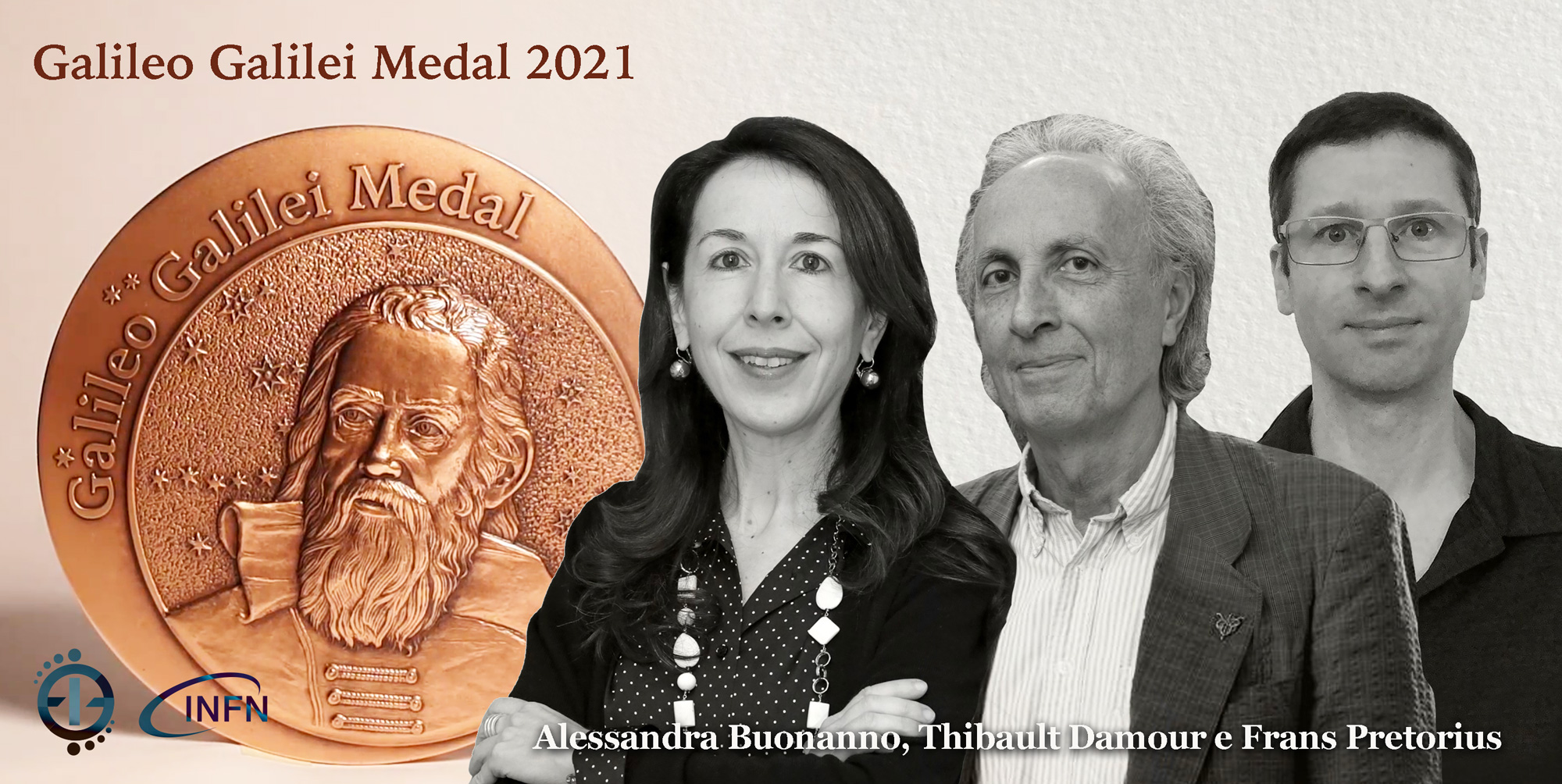Alessandra Buonanno has been awarded the Galileo Galilei Medal by the National Institute for Nuclear Physics (INFN). Buonanno was cited with Thibault Damour of the Institut des Hautes Études Scientifiques in Paris and Frans Pretorius of Princeton University “for the fundamental understanding of sources of gravitational radiation by complementary analytic and numerical techniques, enabling predictions that have been confirmed by gravitational wave observations and are now key tools in this new branch of astronomy”.
Stefania De Curtis, director of the Galileo Galilei Institute, wrote that "Professors Buonanno and Damour, and professor Pretorius proposed two complementary approaches, analytical and numerical, to describe the behavior of two black holes spiraling around each other until they collide. Their description was used for the analysis of experimental data that, in 2015, led the LIGO and VIRGO scientific collaborations to the observation of the first gravitational waves emitted by the collision of two black holes".  2021 Galileo Galilei medal
2021 Galileo Galilei medal
Buonanno is the director of the Astrophysical and Cosmological Relativity Department at the Max Planck Institute for Gravitational Physics in Potsdam and a Research Professor at the University of Maryland. She joined the UMD Physics in 2005, and received an Alfred P. Sloan Foundation Fellowship and the Richard A. Ferrell Distinguished Faculty Fellowship. She is a Fellow of the American Physical Society and the International Society of General Relativity and Gravitation. In 2018, she received the Leibniz Prize, Germany's prestigious research award.
In discussing the work that led to the Galilei Medal, Buonanno explained that "To identify the source that generated the gravitational waves we observe on Earth, we need hundred thousand of waveform models. To achieve this goal about 20 years ago we introduced a novel approach to solve analytically the two-body problem in general relativity. This approach paved the way to develop the highly precise waveform models that today are routinely used by LIGO and VIRGO to detect binary systems composed of black holes and neutron stars and infer unique information about astrophysics, cosmology and gravity”. She offers futher discussion in this video.
Buonanno and others detailed UMD's contributions to gravitational studies in a 2016 forum, A Celebration of Gravitational Waves.
=====================================
This story was adapted from the INFN website; for further information on the award, see https://home.infn.it/en/media-outreach/press-releases/4303-the-2021-galileo-galilei-medal-goes-to-alessandra-buonanno-thibault-damour-and-frans-pretorius